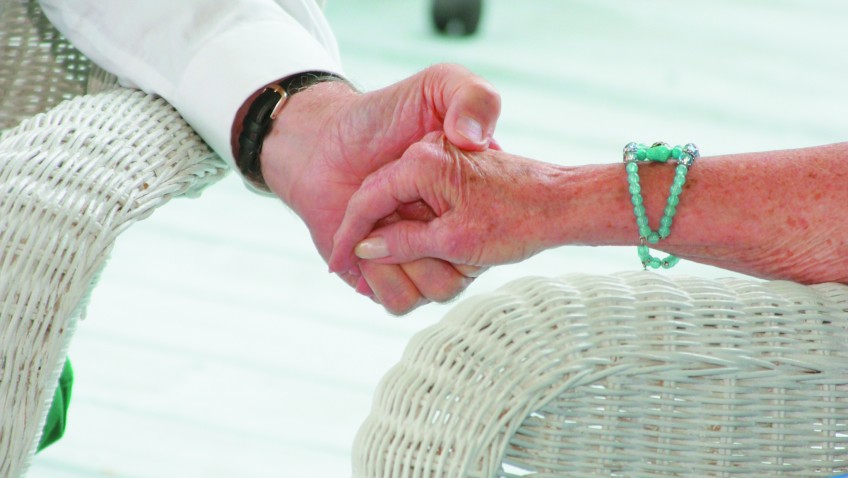We are such stuff
As dreams are made on, and our little life
Is rounded with a sleep
(The Tempest – Shakespeare)
Sleep can often be affected by dementia, often resulting in sleeping more in the day with more restlessness at night. It is important to try and maintain the natural rhythms of day and night maximising the use of natural day light.
Where possible go out for a walk together in the day or ask a friend or befriender to go for a walk with your loved one. Being outdoors in natural daylight is one of the most important cues for the brain to distinguish between night and day. If possible, go outdoors in nature as this can help the person become more intune with the natural times of day and night.
Don’t forget to be aware of your senses; by feeling a breeze on your skin, seeing a view, green trees, grass, hearing birdsong, a river flowing or sounds of the sea, touching the earth, sand, the bark of a tree can help you both feel reconnected and give you a sense of wellbeing.
Social, mental and physical activities can be helpful in keeping your loved one also engaged throughout the day that may stop them sleeping. Whilst an afternoon nap can be a good relaxing habit, too much sleep in the day will upset the person’s body clock even more, so try and keep this to a minimum. Maybe play some games together, where possible, the facts of the games don’t matter, it is more the engagement that you have together that may offer some mental stimulation.
Getting out pens, crayons and pencils and have a go at drawing, you may be surprised and surprise yourself at what can be created, be in the moment. Create a schedule throughout the day that includes mealtimes within the routine. The use of a large clock may help your loved one to understand what time of day it is. At bedtime, reduce the noise level in the house, as too much sensory stimulation can be confusing.
Eat the evening meal at least an hour before bedtime and maybe play a quiet piece of relaxing music before going to bed, over time there may be an association between the music and bed, maybe a lullaby.
Use of dark curtains in the bedroom can be helpful but be aware that if your loved one does get up at night, maybe a light with a sensor could be arranged to come on where there is movement to avoid the risk of falling.
If you try these strategies and still your loved one is restless at night, try and sleep or rest when they do, to make sure that you get your rest.
Don’t expect miraculous changes over night but by bringing in a routine over time, your loved one’s sleep pattern may settle.
by Jane Mullins
Jane Mullins (RGN, Bn, PGcASR) is a dementia nurse consultant. She has worked on the Memory Teams of Bath and Cardiff, managed a Nursing Home and cared for older people in many hospital settings. Her PhD; A Suitcase Full of Memories explores holiday reminiscence activities for people with dementia and their partners.
 She is the creator of DUETcare, Dignity, Understanding and Empathy Training, specialising in training in Dementia and Care of the Older Person. She is involved in a number of creative projects including playfulness and the use of music and playlists for people living with dementia and their partners and families.
She is the creator of DUETcare, Dignity, Understanding and Empathy Training, specialising in training in Dementia and Care of the Older Person. She is involved in a number of creative projects including playfulness and the use of music and playlists for people living with dementia and their partners and families.
This column is here to help you understand what is happening and how the dementia may affect your loved one and offers tips and suggestions to help you. This column is not intended to replace your GP or Specialist Doctor, it is to give a guide to explain what may be happening to your loved one living with dementia and how you may be able to help through adopting interesting and helpful approaches.
Dementia affects people individually and different stages will come with different issues, therefore, the advice here is general and I would always recommend speaking with your doctor.






